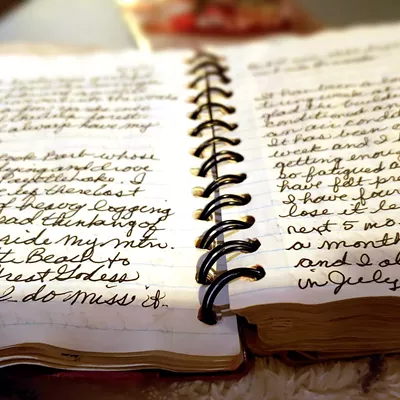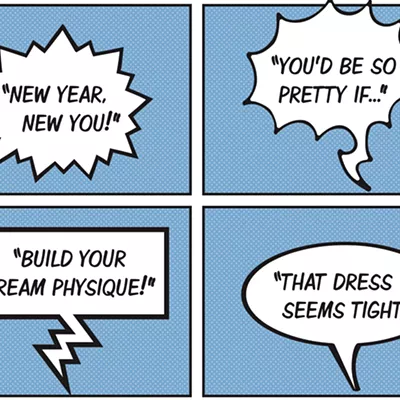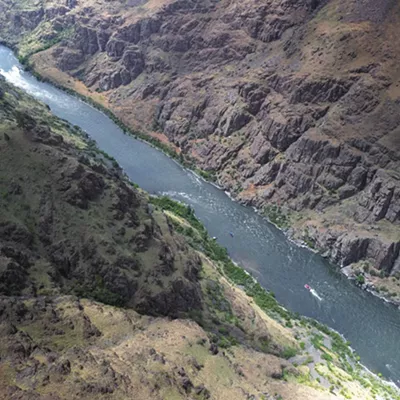There is a sliver of light on the eastern horizon. Today will break cold. Today will break clear. Last night was the coldest of the season so far, but there are colder to come. The first heavy snow has fallen. I hope the bear who stood on our deck two nights ago looking into our empty house has found safety for the season. I wish, just as we have houses for birds and bats, we could also place dens on this small bit of forest we live in.
The messages have been coming in since midnight. They arrived as I was dreaming of swimming across the ocean with my late dog Cisco. The ocean was filled with sharks and I kept kicking at them, trying to keep them away from my dog, but soon he was missing and fear woke me.
When Cisco was dying, I pressed my body to him and prayed that one of my own years could be given to him.
The first message pinged, "No matter what, we have to keep on fighting."
Cisco, you see, had a tumor growing on his liver. Earlier, on the morning of his death, I had noticed his belly a bit swollen. The vet came over and she noticed it, too. "If it's white fluid that comes from this drain, it is congestive heart failure. If it is blood, you are going to the ER." When we arrived at the ER, a two-and-a-half-hour drive from home, he had to be carried into the hospital. The tumor had ruptured.
Another message: "We've been through this before. We can do it again."
The stairs had been starting to labor him. He would get out of breath about halfway up. He was old. Our other dog, the girl dog, Carhartt, she was old, too. She had died the summer before. Her body gave out. Seventeen years is a long time for a dog, and yet, she would keep walking her vigil around this house. There is a difference between fighting to live and just living because it is all you have ever known. We like to say that Carhartt's spirit carried her when her body could not, but it's hard to know. Sometimes life just goes on. We knew that Cisco's horizon was nearing when he tried to jump on the bed we kept low for dogs, and he fell off. He lay on the floor with his head bowed. He was a dog full of pride and ability.
"We have to keep fighting," came another voice from the dark. "Harder now."
"I don't know what the f— that means," I whisper to my partner in the bed Cisco fell off of.
In the spring before Carhartt died, she got trapped beneath our deck. The snow was deep and her mind and eyes were foggy. She followed some scent along the earth and found herself nose to dirt to snow to deck bottom and her body surrounded by all three. She had only known forward, forgotten how to back up. She cried out, and I heard her. I started shoveling. Cisco had once gotten trapped in the snow. A tree pit, that area left dry around the trunk, surrounded by walls of white and cold. I called to him, but unlike Carhartt, he didn't bark or yelp. I found him by following his tracks. He lay exhausted in a bed of pine needles. His attempts clawed against the snow. I climbed in with him.
"We can't stop..."
I was shoveling feverishly when a UPS truck pulled up. I told the driver what happened. He ran to his truck and returned with a shovel. I called Caleb, my partner, who drove home from work. There were several feet of snow, she was crying. My partner bellycrawled to her. Placed a hand on her leg to calm her.
"We must lift one another..."
I was able to lift Cisco out and then carry his exhausted body back home, only because I had snowshoes and strength left. When he was older he did not want to be carried. But that day at the ER, Cisco let the vet carry him. He was tired. His body was tired. There was no way to know how long he had been fighting.
People say, "Fight!" and I say, "My people and my gender have been fighting for centuries and we are tired."
Caleb helped Carhartt back up and turn around. When she came out from under the deck, the three of us cheered. When she fought the drug that would stop her heart, when she gasped for air I only cried harder.
"Give me your tired, your poor, Your huddled masses yearning to breathe free, The wretched refuse of your teeming shore. Send these, the homeless, tempest-tossed to me..." a friend quotes. That poem wasn't written for me or the others forced to come. The message, nevertheless, seems prescient.
We were given a choice: surgery or euthanasia. The surgery would give him two to four months. My deal, a year for a year, was rejected. Under a blue Idaho sky, covered by a red blanket, Cisco lay on a gurney, my tears soaking his fur, Caleb jamming his hands over and over again in his pockets. We had choices and still we felt helpless.
The sky is almost light now. The snow that fell in the last week is cold and white and deep over the graves of Cisco and Carhartt and everything else.
I don't think I'm up for fighting the grief that is arising or anything else today. I'm tired and I have been tired for a very long time, and I can't find any more years to give away and even if a shovel could unbury what I've lost I wouldn't know where to start digging.
I have not seen bear tracks today.
"Seven," I message Caleb.
There are seven deep blue Steller's jays at the empty feeder. Their cries can't be ignored. I have food for them by the door. The pup asleep by the fire, she'll be wanting a long walk soon, no matter how cold and bleak and icy the road may be. ♦
CMarie Fuhrman is the author of Salmon Weather: Writing from the Land of No Return (forthcoming), Camped Beneath the Dam, and co-editor of two anthologies, Cascadia Field Guide and Native Voices: Indigenous Poetry, Craft, and Conversations. Fuhrman is the associate director of the graduate program in creative writing at Western Colorado University. She resides in West Central Idaho.

























